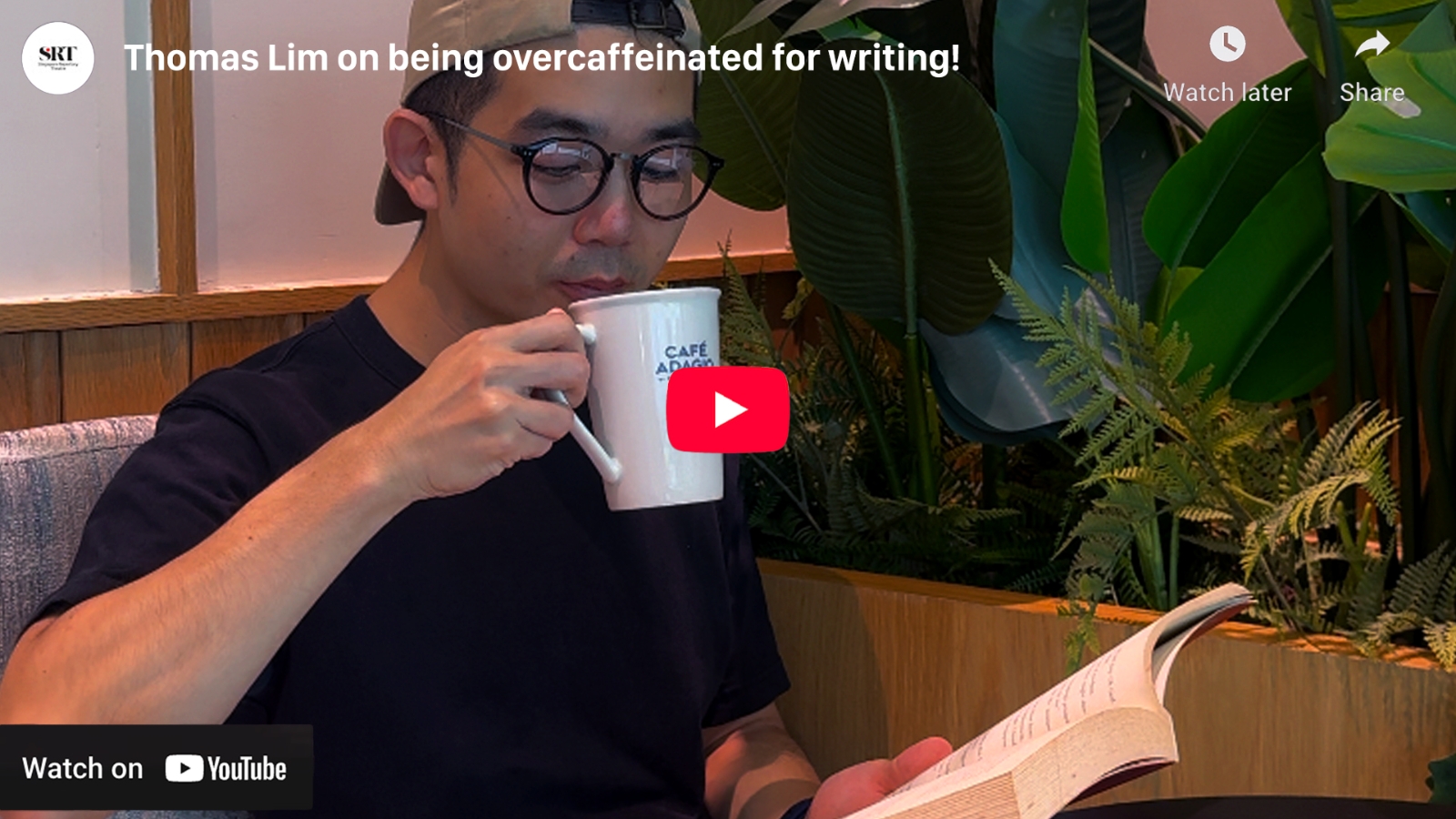Known for acclaimed works such as Grandmother Tongue and SRT’s Fried Rice Paradise – The Makan Party, playwright and director Thomas Lim has become one of Singapore’s most distinctive voices in contemporary theatre. His plays explore themes of identity, family, and belonging. Stories rooted in everyday life, told with empathy and honesty.
Now, Thomas takes on a new role as the lead mentor of SRT’s Playwriting Young Company, a programme designed to guide young storytellers aged 16–25 through the process of developing their very own short play. Through biweekly masterclasses, participants will learn the fundamentals of playwriting; from idea generation and character development to structure and dialogue. All while building creative confidence and community.
We caught up with Thomas to talk about his journey as a playwright, what young people can expect from the programme, and why playwriting remains one of the most powerful tools for understanding ourselves and the world around us.
1. You’ve written plenty of well-loved stories that explore identity, family, and belonging. What first drew you to playwriting, and what keeps you inspired today?
Thomas: I read and watched a lot of Singaporean plays in my teenage years as part of drama club. We read Kuo Pao Kun, Haresh Sharma, watched plays devised by our friends from other schools. There were all vastly different from everything we were seeing on TV (except, at that time, Phua Chu Kang). I saw a lot of myself, my friends and my community in those plays. The characters on stage weren’t speaking in languages approved for broadcast - they spoke like us. They complained about tuition, just like us. They were worried about what to do after O levels, just like us. And it was made all the more special when the audience around me gasped, laughed and teared as I did. That feeling of experiencing something together is what drew me into playwriting - I wanted to write more stories and plays so that more people can experience that. That still keeps me going till this day.
2. Your repertoire of works spans from your debut play Grandmother Tongue with Wild Rice in 2016, to SRT’s latest dinner theatre sensation, Fried Rice Paradise – The Makan Party. How has your craft evolved through these experiences, and what have they taught you about storytelling?
Thomas: There is saying that theatre is not complete without the presence of an audience. To me, the presence of an audience is not enough. A connection must be made between the play and the audience - in whatever way, shape or form that connection might look like. That’s something that a playwright needs to think about from the very moment they begin to write. Throughout my journey, I make it a point to observe how different audiences connect to the plays I write. What that did for me on a craft level is I now have more tools and ways of making that connection with the audience compared to when I first started.

3. What can young people expect from The Playwriting Young Company — and how will you guide them through the process of bringing their ideas to life?
Thomas: We’ll embark on a journey to write a play together. That journey will look very different for each person in the process so I like to think we’re all travellers on our own paths that come together every so often (every two weeks) to share our latest adventures (scenes, works-in-progress) with each other. We’ll look at craft through writing exercises, explore different ways of thinking and writing, but it is ultimately up to you to choose what you want to write about and how you are going to write it.
4. What do you think makes playwriting such a powerful tool for young people in today’s world?
Thomas: I have learned a lot about people and the world from playwriting. It’s more than just a literary genre or means of storytelling. The dramatic form expects a lot of the writer. It requires the playwright to inhabit multiple viewpoints which are often at odds with each other, understand how characters come to believe what they believe, the systems and structures that have made them who they are. As playwrights, we are responsible not just for telling the stories of characters that are most like us, but also the characters that are most unlike us. In today’s world where we often find ourselves surrounded by people and algorithmic content that agree most with us, playwriting demands that we reach out of our bubbles and extend our basic kindness and empathy to everyone.
5. If you could give one piece of advice to a young person who’s bursting with ideas but doesn’t know where to start — what would it be?
Thomas: Don’t write alone. Find or start a community of writers that you trust and can support your writing journey. Write, meet, have it read out loud. Or... Come join us at The Playwriting Young Company!
Find out more and sign up for SRT’s Playwriting Young Company here.



